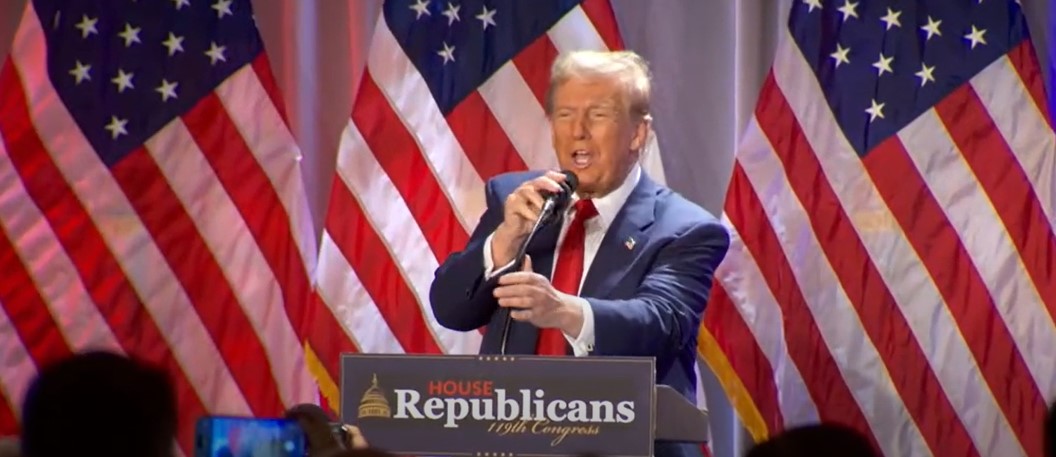Foreign Affairs
US Businesses Suddenly Stop Carrying Water For Beijing As Second Trump Term Looms

(Screen Capture/CSPAN)
Corporate America is quickly losing interest in defending China as President-elect Donald Trump gears up for a second term, The Wall Street Journal reported Thursday.
Businesses like Apple, Nike and many other companies that previously vocally opposed Trump’s proposal of tariffs with China are now notably silent as Trump prepares to assume office, according to the WSJ. As China’s economy continues to suffer from slowing growth and mounting debt, U.S. companies no longer see the nation as a reliably profitable market to expand in, making them more receptive to playing ball with Trump’s economic agenda.
Trump has proposed a 20% universal tariff to all imported goods, and a 60% or higher tariff on all Chinese goods aimed at combating “unfair practices of foreign companies and foreign markets,” Brian Hughes, spokesperson for the Trump-Vance transition team, previously told the Daily Caller News Foundation.
“U.S. companies are more wary about doing business in China,” Anja Manuel, executive director of the Aspen Security Forum, told the WSJ. “You see that across all industries.”
Trump’s tariffs on Chinese goods were maintained for the most part by President Joe Biden throughout his term, according to the WSJ. The U.S. still operates in a trade deficit with China, totaling around $245 billion in the first ten months of 2024.
Part of the impetus for the tariffs involves America’s struggling industrial base, with manufacturing shrinking to only 10% of the GDP in 2024 from around 25% in the 1950s, according to an analysis from Coalition for a Prosperous America.
China’s economy is hitting a rough patch, as industrial production slowed in late 2024, according to the WSJ in November. China is also suffering from mounting debt, with combined borrowing from the government, households and corporations approaching 300% of the annual gross domestic product (GDP).
The real estate market in China had $18 trillion of value wiped out from 2021 to 2024, according to the WSJ.
Moreover, China is behind only Mexico and Canada as a buyer of U.S.-made products, with U.S. exports to the nation totaling $147.8 billion in 2023, according to the U.S. Census Bureau. However, imports from the U.S. declined 3.9% in November, according to China’s customs authority.
For example, General Motors long saw China as a place to expand their technology and research divisions to access their markets, according to the WSJ. However, it is now expected to take a $5 billion hit because of fierce competition from Chinese car brands like BYD, with GM’s market share shrinking from 13.7% in 2018 to 8.4% in 2023.
Companies like Apple rely on China for their supply chains, but even the tech giant is diversifying its sourcing to countries like Vietnam and India as it struggles to compete with Chinese-owned companies like Huawei, according to the WSJ. Starbucks is also being undercut by Chinese business Luckin Coffee, with CEO Brian Niccol calling the competition “extreme.”
“For four years, the Chinese Communist Party has been using spy balloons to surveil our country, buying up American farmland, crippling our manufacturing industry, stealing American intellectual property, and undercutting our workers,” Karoline Leavitt, Trump-Vance transition spokeswoman, told the DCNF. “The American people elected President Trump to stand up to China, enforce tariffs on Chinese goods, and Make America Strong Again. He will deliver.”
All content created by the Daily Caller News Foundation, an independent and nonpartisan newswire service, is available without charge to any legitimate news publisher that can provide a large audience. All republished articles must include our logo, our reporter’s byline and their DCNF affiliation. For any questions about our guidelines or partnering with us, please contact [email protected].

